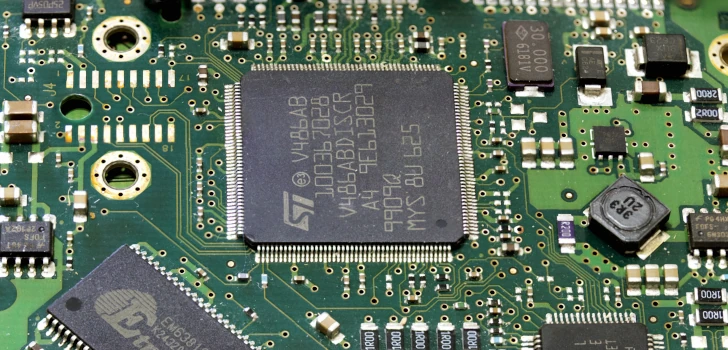
May 29, 2023
Recently, I was looking for a couple of Single Board Computers (SBCs) for a project I’m working on.
Given the characteristics I was looking for, there were not many options; in the end, I opted for the ROCKPro64 by Pine64.
Once I received the SBC, I immediately tried to put Fedora on it.
The process proved slightly more complex than I was expecting since I assumed that U-Boot (or some other boot loader) was already present on the board.
Turns out, it is not!
So, the first step became installing U-Boot.
An aspect I really like about the ROCKPro64 is that it has 128Mb of Serial Peripheral Interface (SPI) Flash memory.
I appreciate this fact because it allows me to install U-Boot there and then a standard OS on another storage device.
Speaking of other storage devices, the ROCKPro64 features both an optional eMMC and the mSD Card slot.
The process turned out more complex than I initially thought since my goal was to use Fedora on the eMMC, but I forgot to get the eMMC USB adapter, so I had to leverage the mSD Card as well.
Read More 
April 18, 2023
With Fedora 38 officially released, Sericea and Sway Spin have also been officially released!
In the last month, I’ve been working on those variants’ presence on the Fedora website.
Now both variants have their page on the Fedora Website respectively at Sericea and Sway Spin.
If you have any questions, reach the Sway SIG in the following ways:
I hope many of you will find these valuable improvements to Fedora as much as I do.
Read More 
March 24, 2023
The Fedora Project released Fedora 38 beta images.
The Fedora Sway Spin and the Fedora Sericea ones are in the long list of released images!
This is a critical point in the release of those Fedora artifacts based on Sway since it is the first time it has been possible to test them for the wider public.
Although the Fedora Project has been creating Sway artifacts for a couple of months, those were based on Rawhide, which is “a not always stable” version of Fedora, since it tracks far in the future (4-10 months) versions of Fedora.
Read More 
March 6, 2023
I bought a MACCHIATObin Single Shot a few months ago with the idea of creating a NAS out of it.
The results have been very good and, to begin in an easy way, I decided to install Fedora 37 Server Edition.
Now that I’ve decided exactly what I want out of it, I reinstalled Fedora and started from scratch with exactly what I wanted.
I decided to install Fedora 37 IoT, which is an rpm-ostree based release.
To create the installation media, I leveraged arm-image-installer.
Overall everything went well, and the system booted successfully, although I wasn’t sure at first due to an issue with my DHCP server configuration.
Therefore I decided to connect to the board serial port and see if the boot was successful.
Read More 
January 4, 2023
Back in August, I asked for suggestions for a name for an os-tree-based Fedora version with Sway.
Although I’ve not posted anything more on the topic, the work went forward.
We have asked Fedora Council to approve the naming, to FESCo for the approval for the change to Fedora, and to RelEng support to merge our work in the Fedora workstream.
A couple of weeks ago, the Fedora Council approved the request to create a “traditional” spin called “Fedora Sway spin” as well as an os-tree spin called “Fedora Sericea”.
Read More 
December 21, 2022
Back in April, I announced the availability of gopass in the Fedora repositories.
In the last few months, though, gopass had multiple releases, many of which arrived in Fedora 38 but not Fedora 37.
Since Fedora 38 will be released in a few months, most users are not using it, and therefore those releases are not directly benefitting those users.
The reason for the delayed update for Fedora 37 is that the dependencies of gopass changed in the course of those updates, and the Fedora process makes updating packages with many dependencies changes more painful than it could be.
Read More 
August 31, 2022
After my last post about MACCHIATObin, a few people reached out to better understand how to install Fedora on it.
The MACCHIATObin board provides many different installation options.
It has an onboard eMMC (in my case, 8GB, but I’m not sure if other sizes are available), an SD card slot, 3 SATA ports, and 1 PCI x4 slot.
This setup means that the various options to install Fedora on a MACCHIATObin are:
Read More 
August 12, 2022
The Fedora Sway SIG is working to create an immutable version of the Sway Spin (also work in progress) using OSTree.
Those immutable spins of Fedora are becoming more common following Silverblue and Kinoite’s success.
As it often happens, one of the most challenging things to do in creating something is to come up with clever names.
This task is made even more complex by the relatively small amount of people active in this conversation.
For this reason, during the last SIG meeting, it was decided to socialize this decision so that more people could suggest their ideas.
Read More 
July 31, 2022
I’ve played with a MACCHIATObin Single Shot board for the last month.
I decided to pick this up instead of a different board because of its sheer connectivity.
This board has 1x1GbE, 1x2.5GbE, and 2x10GbE, which is very rare for those kinds of boards.
I was most interested in the two 10GbE due to some projects I have in mind.
I was interested in installing Fedora, which proved very easy.
The first time I created a bootable micro-SD card with Fedora, it worked perfectly out of the box.
After a few tests, I decided to install Fedora on a SATA drive.
The SATA installation proved a bit more complex because I assumed it could boot from USB, but I did not manage to do so.
I then moved the Fedora ISO to a micro-SD card and installed it from there, which proved to work flawlessly.
Read More 
June 30, 2022
In the last year, I moved more and more data and services to hardware that I can directly control.
A direct consequence of this is that I started to run more hardware at my house.
This change has been very positive, but it is suboptimal when not at home.
All services I run are secure and could be shared directly on the web, but I prefer a more cautious approach.
For this reason, I decided to create a VPN.
Read More 








